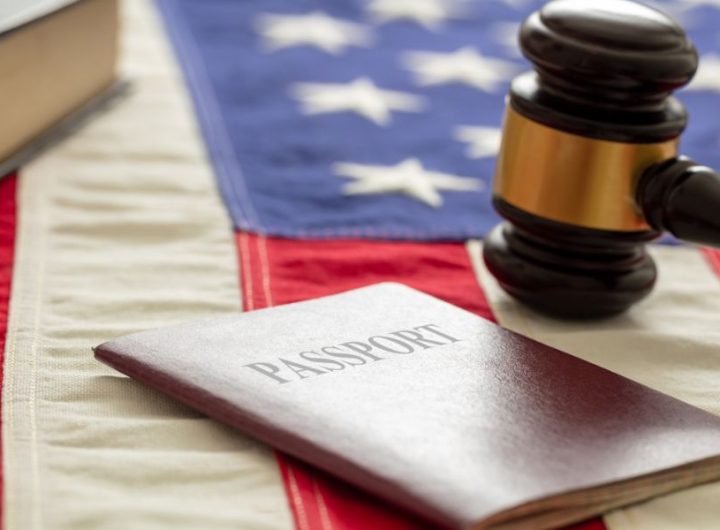
When same-sex couples in Washington decide to end a marriage or long-term partnership, the legal path looks familiar in some ways and different in others. Property must be divided, parenting plans drafted, and support calculated. Yet questions around parentage, years of pre-marital cohabitation, and assisted reproduction can complicate the picture. Using mediation in divorce helps bring clarity without the scorched-earth feel of a courtroom battle. It’s private, flexible, and designed to produce equitable settlements that minimize emotional and financial strain for both parties.
Couples often begin with a consultation at a Washington family law firm, such as hodgsonlawoffices.com, to understand their options and choose a mediation-first strategy. In short, consider this a Using Mediation in Divorce guide focused on Washington’s LGBTQ+ families.
Shared legal challenges in same-sex divorce cases
Property and finances
Washington is a community property state, but courts divide assets and debts in a way that’s “just and equitable”, not automatically 50/50 (RCW 26.09.080). That nuance matters for couples with uneven incomes, business ownership, or separate property brought into the relationship. Retirement accounts typically need a Qualified Domestic Relations Order (QDRO) to divide without tax penalties. Spousal maintenance (alimony) is based on need and ability to pay (RCW 26.09.090). And since 2019, maintenance is no longer tax-deductible to the payer for new orders under federal law, a budgeting point that hits both sides.
Parenting and support
Regardless of the parents’ genders, Washington requires a parenting plan that addresses decision-making, residential schedule, holidays, and dispute resolution. Child support follows the state schedule (RCW 26.19) and can deviate for good reasons (special needs, travel costs, large time splits). The same calculation rules apply to same‑sex and different‑sex couples.
Jurisdiction and procedure
If a case crosses county lines or involves a move out of state, jurisdiction for custody follows the Uniform Child Custody Jurisdiction and Enforcement Act (UCCJEA). Many Washington counties require Alternative Dispute Resolution (often mediation) before trial in family cases. Mediation sessions are confidential under Washington’s Uniform Mediation Act (RCW 7.07), encouraging frank discussion without fear of courtroom blowback.
Emotions and logistics
Even in amicable cases, divorce is stressful. Overlapping friend groups, co‑parenting logistics, and fears about future finances are universal. Mediation gives both parties a structured way to surface concerns and find tradeoffs without turning every disagreement into a motion or hearing.
Unique family law concerns faced by LGBTQ+ couples
Parentage for non-biological parents
Washington recognizes multiple pathways to legal parentage for LGBTQ+ families, including marital presumptions, de facto parentage (recognized by the Washington Supreme Court and codified in the Parentage Act, RCW 26.26A), and adoption. Still, gaps can surface: if a child was born before marriage equality or without a confirmatory adoption, one parent’s legal status may be less clear. Mediation can prioritize fast solutions, like filing a parentage action or confirmatory adoption alongside the divorce, so the parenting plan rests on solid legal ground.
Assisted reproduction and surrogacy
Questions around donor sperm, eggs, embryos, and gestational carriers arise more often in same‑sex divorces. Washington’s Parentage Act addresses assisted reproduction and permits enforceable gestational surrogacy agreements (RCW 26.26A.700+), but couples still need to decide practical issues: who keeps cryopreserved embryos, how to handle donor contact, and how to document decision-making for future medical choices. These are exactly the kinds of delicate topics a mediator can help thread.
Years of pre‑marital cohabitation
Before Washington legalized same‑sex marriage (2012) and Obergefell v. Hodges made it nationwide (2015), many couples lived together for years. Washington’s “Committed Intimate Relationship” (CIR) doctrine lets courts equitably divide property acquired during a marriage‑like partnership, even if it predates the wedding (see Connell v. Francisco). In mediation, parties can account for the full arc of the relationship, cohabitation, marriage, separation, when deciding what’s fair, instead of litigating every date and definition.
Safety, privacy, and dignity
Although Washington courts strive to be inclusive, some couples worry about outing issues, trans privacy, or cultural misunderstandings. Mediation allows for caucusing (private sessions), thoughtful language in agreements, and choosing professionals with LGBTQ+ cultural competence. For families navigating name or gender marker changes during a breakup, a mediator can build those administrative steps into the timeline so nothing gets lost.
How mediation provides a constructive alternative to litigation
What mediation is, and isn’t
Mediation is a structured negotiation led by a neutral trained to help both sides reach agreement. It’s not therapy and it’s not a trial. The mediator doesn’t decide who’s right: they uncover interests, reality‑test options, and map a path forward. Using Mediation In Divorce keeps decision‑making with the couple, not a judge with limited time.
The Washington process, practically
- Preparation: Each side gathers financials (bank statements, retirement balances, business records), drafts parenting proposals, and identifies must‑haves vs. nice‑to‑haves.
- Session flow: Joint meetings to set the agenda, then either joint conversation or private caucuses to untangle sticking points, parenting time, home equity, support duration. Many counties encourage or require this step before trial.
- LGBTQ+-competent approach: A good mediator understands de facto parentage, assisted reproduction, and the CIR doctrine, so the discussion doesn’t get stuck on definitions.
Enforceability and next steps
When the parties settle, terms are written into a CR 2A agreement or a detailed Memorandum of Understanding that becomes the basis for final orders (Decree of Dissolution, Parenting Plan, Child Support Order). Because mediation is confidential (RCW 7.07), offers exchanged there won’t later be used in court if talks break down, freeing both sides to problem‑solve without posturing.
A quick example
Consider Jordan and Priya, together for 11 years (six cohabiting, five married), with one child conceived via donor sperm. In mediation, they agree to recognize Priya’s non‑biological parentage via a confirmatory order, offset home equity with a retirement transfer, and craft a school‑year/week‑on‑week‑off schedule with shared holidays. No trial, no character attacks, just a workable plan.
What benefits does mediation bring to same-sex family disputes?
- Privacy and dignity: Sensitive details about fertility, transition-related healthcare, or donor arrangements stay out of a public courtroom record.
- Cost control: Fewer hearings and faster resolution typically mean lower legal fees. One or two focused mediation days can replace months of litigation.
- Tailored parenting plans: Mediation invites creative solutions, graduated schedules for very young kids, guidelines for sharing school events, protocols for naming conventions or donor contact.
- Expertise that fits: Couples can choose a mediator with deep LGBTQ+ family law knowledge, often alongside counsel who understands the nuances.
- Reduced conflict for kids: Parents practice collaborative decision-making in mediation, a skill that carries over when co‑parenting gets hard.
- Flexible tradeoffs: Instead of rigid 50/50 splits, parties can balance assets, support, and time in ways that feel fair. Yes, “equitable” doesn’t always mean equal, especially in Washington.
- Faster path to closure: Courts are busy. Mediation can lock in agreements now, then file final orders promptly.
- Power‑imbalance safeguards: With private caucusing, the presence of counsel, and a skilled neutral, mediation can mitigate dynamics where one partner is louder, wealthier, or more legally savvy.
- Durable agreements: People are more likely to follow plans they helped create. That means fewer post‑decree fights and modifications.
Put simply, using mediation in divorce gives same‑sex couples both voice and control, two things litigation tends to mute.


 Uncovering the Realms of Property Division During a Divorce Case
Uncovering the Realms of Property Division During a Divorce Case  Estate Planning After Divorce: Protecting Your Financial Future in Boston
Estate Planning After Divorce: Protecting Your Financial Future in Boston  The Role of Evidence in Winning a Car Accident Claim in Atlanta
The Role of Evidence in Winning a Car Accident Claim in Atlanta  Exploring the EB-5 Investor Visa Program and Immigration Pathways in 2025
Exploring the EB-5 Investor Visa Program and Immigration Pathways in 2025  Workers’ Compensation Rights and Employee Protections in Washington State
Workers’ Compensation Rights and Employee Protections in Washington State  Smart Strategies a Harlem Personal Injury Lawyer Uses to Maximize Car Accident Settlements
Smart Strategies a Harlem Personal Injury Lawyer Uses to Maximize Car Accident Settlements